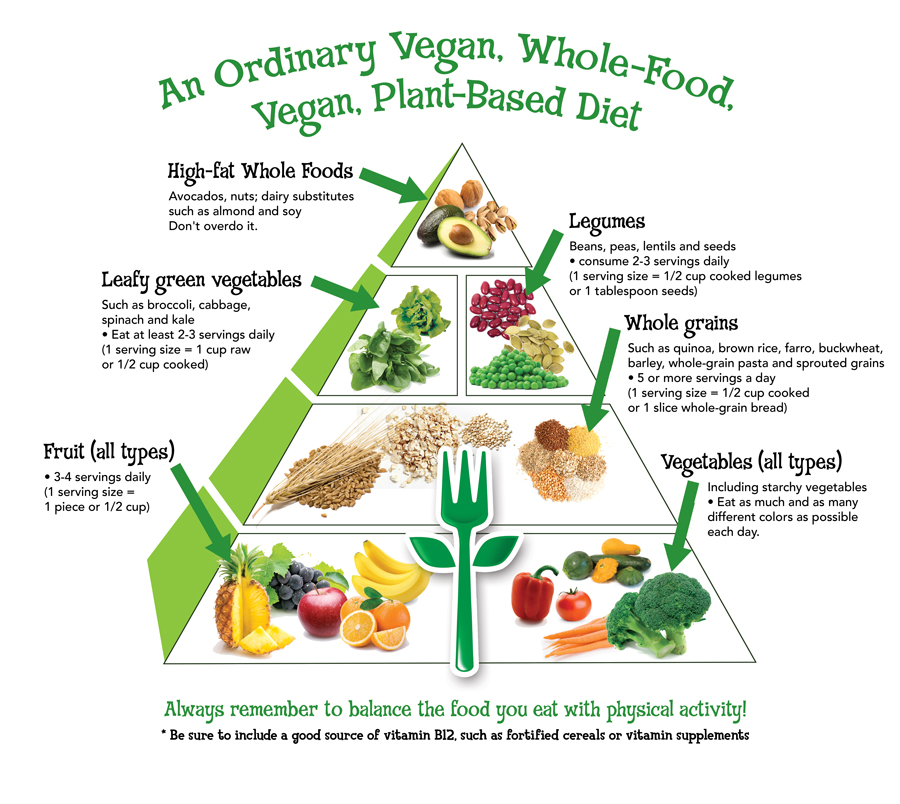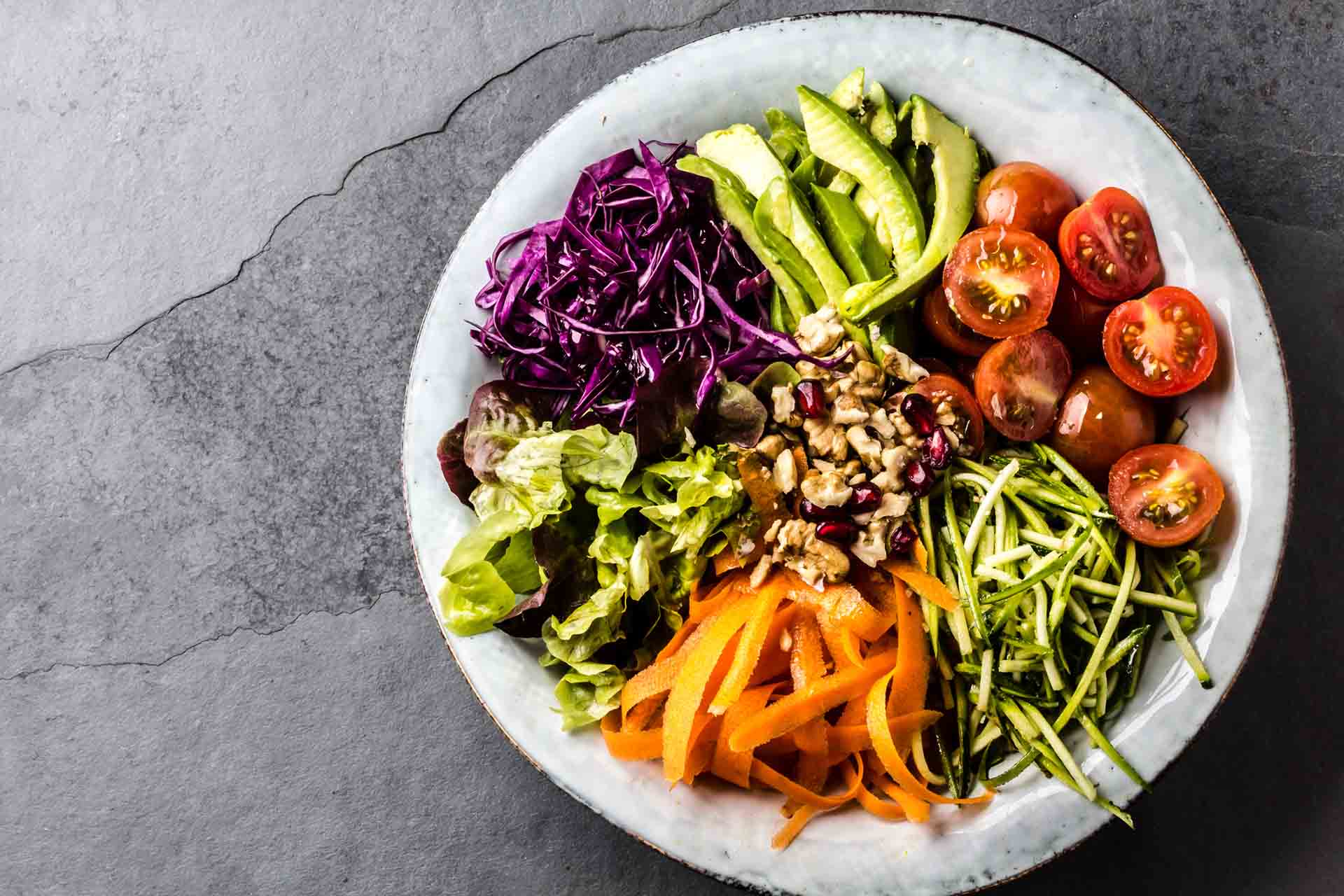Dietitian-Approved Sugar Free Sauces for Clean Eating Success
Dietitian-Approved Sugar Free Sauces for Clean Eating Success
Blog Article
Everything About Healthy Food: Benefits of Embracing Plant Based Options
The discussion surrounding plant-based diets has acquired considerable interest recently. Lots of people are checking out the prospective health and wellness benefits, dietary benefits, and ecological impacts associated with these nutritional selections. As individuals become more mindful of their food's impact on wellness and sustainability, questions arise concerning the usefulness of embracing such a lifestyle. What details adjustments can one expect, and how might these selections reshape not only individual health and wellness but additionally the world's future?
Understanding Plant-Based Diet Regimens
Although lots of people link plant-based diet plans mainly with vegetarianism or veganism, these diet plans can encompass a vast variety of consuming patterns that prioritize entire, minimally processed plant foods. Such diet plans often consist of fruits, vegetables, whole grains, nuts, seeds, and vegetables, while restricting or eliminating animal items. This adaptability allows people to customize their dietary options according to individual preferences and nutritional demands. Some may embrace a largely plant-based diet plan while still periodically consuming meat or dairy, commonly described as a flexitarian approach. The focus stays on including more plant foods, which can result in a diverse variety of flavors and meals. Comprehending these different analyses of plant-based consuming is essential for appreciating its availability and allure in modern food society.
Health Benefits of Plant-Based Foods
The health benefits of plant-based foods are considerable, using a nutrient thickness benefit that sustains general health. Study shows that these foods can boost heart wellness and play an essential function in reliable weight monitoring. By integrating more plant-based choices, individuals may boost their dietary options and promote long-lasting wellness.
Nutrient Density Advantage
Nutrient density plays a necessary function in the health advantages of plant-based foods, making them an engaging choice for those seeking a well balanced diet plan. Plant-based foods, such as fruits, vegetables, vegetables, nuts, and whole grains, are usually rich in vital vitamins, minerals, and antioxidants while being lower in calories. This high nutrient thickness permits individuals to eat fewer calories while still fulfilling their nutritional needs. Furthermore, these foods are loaded with nutritional fiber, promoting digestion health and assisting in weight management. By integrating nutrient-dense plant-based options, consumers can boost their overall health, sustain their immune systems, and decrease the risk of chronic diseases. Inevitably, the nutrient thickness of plant-based foods emphasizes their value in a health-conscious way of life.
Heart Health And Wellness Improvement

Weight Monitoring Support
Along with advertising heart health, a plant-based diet can considerably assist in weight management. This dietary technique emphasizes whole foods such as fruits, vegetables, vegetables, nuts, and whole grains, which are usually reduced in calories and higher in fiber contrasted to animal-based items. The high fiber material aids boost satiation, minimizing overall calorie intake. Plant-based diets are often abundant in essential nutrients while low in unhealthy fats, making it less complicated to preserve a healthy weight. Research suggests that people that take on a plant-based lifestyle often tend to have reduced body mass indexes (BMIs) and experience more effective weight loss contrasted to those who take in meat-heavy diet plans. Welcoming plant-based options is a calculated option for efficient weight management.
Nutritional Worth of Plant-Based Active Ingredients
Plant-based active ingredients are rich in important nutrients, supplying a varied selection of vitamins, minerals, and anti-oxidants that contribute to overall health and wellness. A comparison of healthy protein sources exposes that while animal items are often deemed exceptional, several plant-based options offer sufficient healthy protein and other beneficial substances. Comprehending the nutritional worth of these components can assist people make educated nutritional options.
Vital Nutrients in Plants
Nutrient-rich active ingredients discovered in plants provide a diverse array of important vitamins and minerals that contribute substantially to total health and wellness. These components are abundant in vitamins A, C, and K, which support immune function, vision, and blood clot, respectively. On top of that, plants supply crucial minerals such as calcium, potassium, and magnesium, crucial for heart health and wellness, muscle function, and bone toughness. The visibility of fiber in plant-based foods aids digestion and promotes a healthy and balanced intestine microbiome. Anti-oxidants, located abundantly in vegetables and fruits, aid fight oxidative stress and reduce swelling. Many plant foods are low in calories yet high in nutrients, making them an outstanding choice for those looking for to preserve a healthy weight while making sure suitable nutrient consumption.

Comparing Healthy Protein Sources
Protein resources differ considerably in their dietary accounts, with plant-based active ingredients using special advantages. Unlike pet healthy proteins, which often include saturated fats and cholesterol, plant proteins tend to be lower in these undesirable elements. Legumes, nuts, seeds, and whole grains are abundant in vital amino acids, fiber, vitamins, and minerals. Lentils provide high protein material alongside substantial iron and folate, while quinoa is a complete protein, using all 9 necessary amino acids. Furthermore, plant-based proteins are typically accompanied by antioxidants and phytochemicals that sustain general health and wellness. The change to plant-based healthy protein resources not just improves nutritional consumption but additionally aligns with lasting dietary methods, decreasing ecological impact and advertising long-term health and wellness benefits.
Environmental Influence of Plant-Based Eating
As recognition of climate modification expands, numerous people are exploring sustainable nutritional choices that can considerably lessen their environmental impact. Plant-based consuming has become a significant contributor to minimizing greenhouse gas emissions, which are mainly related to livestock production. The cultivation of fruits, grains, veggies, and vegetables usually calls for fewer sources, such as water and land, contrasted to pet farming. Additionally, plant-based diet plans can cause lowered logging, why not try these out as much less land is needed for grazing livestock or growing animal feed. By shifting towards plant-based choices, customers can sustain biodiversity and advertise much healthier ecosystems. Overall, embracing plant-based eating not just benefits personal health and wellness however likewise represents a crucial action towards ecological sustainability and preservation initiatives.
Conquering Common Misconceptions
While several people identify the advantages of a plant-based diet plan, a number of false impressions often deter them from totally welcoming this way of living. An usual belief is that plant-based diet plans lack sufficient healthy protein; nonetheless, many plant resources, such as vegetables, nuts, and tofu, provide ample protein. In addition, some think that this diet plan is expensive, when actually, staples like beans, rice, and seasonal veggies can be fairly affordable. An additional false impression is that plant-based consuming is overly limiting, whereas it really provides a diverse variety of flavors and foods. Ultimately, lots of worry that a plant-based diet regimen might result in shortages, yet with appropriate planning, people can obtain all essential nutrients, consisting of minerals and vitamins, while enjoying a wide range of scrumptious meals.
Tips for Transitioning to a Plant-Based Lifestyle
Making the shift to a plant-based lifestyle can be an improving experience, though it frequently calls for some assistance to browse the initial changes. People are urged to start slowly, including more fruits, vegetables, vegetables, and entire grains right into their meals while decreasing meat and milk intake. Meal planning is necessary; preparing a weekly menu can assist alleviate the adjustment and prevent last-minute undesirable options. Discovering cooking techniques and new dishes can likewise keep and enhance the experience excitement about plant-based eating. Furthermore, signing up with assistance teams or areas can give motivation and share valuable tips. Finally, staying informed about nutrition guarantees balanced meals, preventing deficiencies while fostering a healthy, satisfying plant-based lifestyle.
Delicious Plant-Based Dish Ideas
Checking out scrumptious plant-based meal concepts can motivate individuals to accept an extra nutritious diet plan. One preferred option is a hearty quinoa salad, including cherry tomatoes, cucumber, and a vibrant lemon-tahini dressing. One more More Bonuses fave is a savory lentil stew, loaded with carrots, celery, and great smelling herbs, ideal for a soothing supper. For breakfast, overnight oats made with almond milk, chia seeds, and topped with fresh berries supply a nourishing beginning to the day. Additionally, a dynamic vegetable stir-fry with tofu and a range of vivid veggies can be a fast yet pleasing dish. Finally, creamy avocado toast on whole-grain bread, sprinkled with seeds and flavors, supplies a simple yet flavorful snack. These dishes display the selection and splendor of plant-based consuming.

Frequently Asked Inquiries
Can a Plant-Based Diet Plan Offer Sufficient Protein?
The question of whether a plant-based diet regimen can offer sufficient healthy protein is typical. Numerous resources, including vegetables, nuts, seeds, and whole grains, can fulfill protein requires effectively, sustaining a nutritious and well balanced diet for individuals.
Are Plant-Based Diet Regimens Suitable for Kid?
The suitability of plant-based diet plans for children depends on mindful planning. Appropriate nutrients must be assured, consisting of minerals, vitamins, and proteins. With appropriate advice, such diets can sustain healthy and balanced growth and growth in children.
Exactly how Do I Eat in restaurants on a Plant-Based Diet?
Eating in restaurants on a plant-based diet regimen involves seeking dining establishments with varied menus, requesting alterations, and exploring vegan-friendly choices. Preparation in advance and communicating dietary choices can boost the dining experience while maintaining dietary options.
What Are Usual Allergens in Plant-Based Foods?
Common allergens in plant-based foods consist of soy, gluten, nuts, and seeds - Gluten Free BBQ Sauce. People following a plant-based diet plan must recognize these irritants and read labels thoroughly to prevent damaging responses and assure secure consumption
Can Plant-Based Diets Assist With Weight Management?
Study shows that taking on a plant-based diet might facilitate weight reduction because of its usually reduced calorie thickness and higher fiber material. This combination can enhance satiety, helping individuals handle their calorie consumption properly. Lots of individuals connect plant-based diet plans mainly with vegetarianism or veganism, these diets can incorporate a vast array of consuming patterns that prioritize entire, minimally processed plant foods. Nutrient density plays an important role in the health advantages of plant-based foods, making them an engaging option for those seeking a balanced diet regimen. Plant-based diet regimens have actually been shown to significantly improve heart health, as they often have components that support cardiovascular feature. In addition to promoting heart wellness, a plant-based diet plan can considerably assist in weight monitoring. A typical idea is that plant-based diet regimens lack enough healthy protein; however, find here countless plant resources, such as legumes, nuts, and tofu, give adequate protein.
Report this page